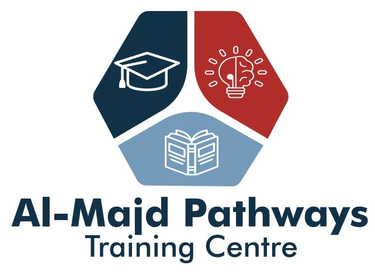
Excellence in Customer-Centric Organisational Practices
£5250.00£4800.00
INTRODUCTION
In today's business landscape, customers are faced with an overwhelming array of choices. The advent of the internet, price-comparison websites, peer-review platforms, and social media has transformed the global business environment. Traditional differentiators have been eroded by the ease of online comparison and information access. Even once-dominant brands have been reduced to commodity status by comparison site algorithms. Simultaneously, social media and peer reviews have elevated the customer experience as the primary determinant of strategic differentiation. To succeed under these new rules, organisations must become genuinely customer-focused.
A customer-centric organisation is built on the belief that long-term success hinges on an unwavering commitment to customer satisfaction throughout the entire organisation. The Customer Experience (Cx) has now become the primary, if not the sole, source of sustainable competitive advantage. This Al-Majd Pathways Centre training course delves into what it takes to cultivate the culture, processes, and relationships that lead to long-term growth and financial sustainability.
The transformation to genuine customer-centricity often requires a cultural shift within most organisations. Leaders serve as role models in planning, communication, coaching, and employee recognition. Their efforts result in increased employee loyalty, greater innovation, and improved customer satisfaction. This Al-Majd Pathways Centre training course looks into what it takes to cultivate the culture, processes, and relationships that lead to long-term growth and financial sustainability.
This training course will address:
Analysing and implementing the best practices of top-performing customer service providers
Recognizing that value exists only in the customer's perception
Understanding customer psychology and decision-making processes
Utilizing proven best practices for measuring and monitoring customer satisfaction
Grasping, predicting, and controlling those pivotal "Moments of Truth" where lasting value is either created or destroyed
Streamlining customer interface operations for optimal service levels
Effectively employing interpersonal skills to supervise and motivate employees
Empowering, motivating, and retaining frontline personnel
Leveraging Social Media to engage customers and facilitate meaningful, profitable dialogues
TRAINING OBJECTIVES
By the end of this training course, participants will be able to:
Describe the leader's role as a role model for customer service excellence
Emphasise the importance of setting and reviewing customer service standards
Apply techniques to motivate teams and individuals for peak performance
Develop effective communication strategies to foster team building
Evaluate surveys to accurately monitor customer satisfaction
Design a practical and challenging customer service employee training program
WHO SHOULD ATTEND?
This training course is suitable for a wide range of professionals, including:
Sales Managers
Customer Service Managers
Team Supervisors
Frontline Customer Service Representatives (CSR)
Account Managers
Field Service Representatives
Department Managers
Marketing Managers
Team Leaders
Supervisors
Professionals
TRAINING APPROACH
This dynamic training seminar is highly interactive and encourages delegate participation through a combination of group discussions, role-play exercises, videos, case studies, and breakout sessions.
The seminar will include benchmarking best practices to model world-class customer service excellence. The comprehensive training course manual has been designed to be practical, user-friendly, and conducive to learning. Delegates will leave the seminar with the skills, confidence, and motivation needed to develop a world-class, customer-centric organisation.
TRAINING OUTLINE
DAY 1 - Building a Customer-Centric Organisation
Why Customer Focus Is Now Paramount
Defining the Vision and Mission of a Customer-Centric Organisation
The Roles and Responsibilities of a Customer-Centric Manager
The Significance of Presenting a Professional Business Image
Mastering Nonverbal Communication
DAY 2 - Enhancing Leadership and Interpersonal Communication Skills
Supervising Individuals with Different Personality Styles
Overcoming Communication Barriers in the Workplace
The Supervisor's Role in Conflict Resolution and Service Recovery
Facilitation Skills: Managing Group Dynamics
Providing Constructive Feedback
DAY 3 - Establishing Customer Service Policies and Performance Standards
Deming's Fourteen Points of Total Quality Management
The Traditional Manager vs. the TQM Manager
Setting SMART Objectives to Enhance Customer Satisfaction
Best Practices: Methods for Measuring and Monitoring Customer Satisfaction
Empowering Frontline Employees to Serve Customers Effectively
DAY 4 - Building High-Performance Teams and Motivating Individuals
The Key Components of a High-Performance Team
The Impact of a Company's Customer Service on Its Worst Employee
Leveraging Mutual Support and Cooperation
Developing Teamwork through Support and Recognition
Coaching and Mentoring Techniques
The Effects of Stress on Individual and Team Performance
The Benefits of Teamwork and Mutual Cooperation
DAY 5 - Leading the Way to Superior Customer Service
Utilizing Social Media to Engage with Customers
Recruiting, Interviewing, and Selecting High-Quality Personnel
Creating and Implementing Effective Training Programs
Understanding the Significance of Attitude and Teamwork
Professional Development and Continuous Improvement
Establishing Performance Goals and Expectations
Recognizing Employee Contributions and Conducting Performance Reviews
Empowering, Motivating, and Retaining Frontline Personnel
Format: Onsite
Language(s): English
Duration: One Week
Certificate of Completion: Upon successful completion of the course, participants will receive a Certificate of Completion from Al-Majd Pathways Centre (APC).
Get in touch with us today.
Follow
Sign-up for our newsletter
0044 7466410010
©2025 All rights reserved.
